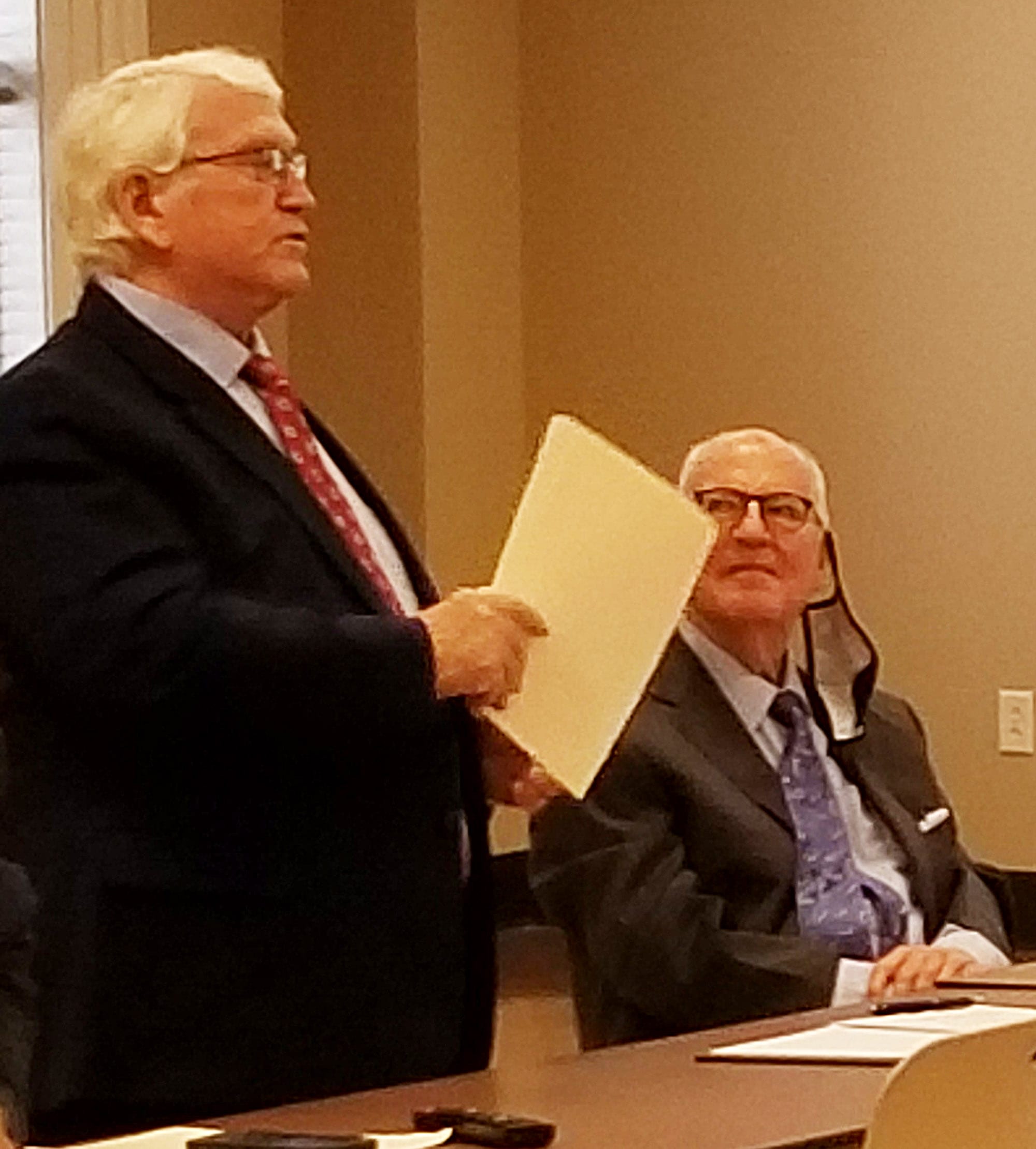
Meeting at the Mississippi Supreme Court building, judges, district attorneys, law enforcement officials, and new leadership at the Mississippi Department of Corrections converged to find better ways to return prisoners to society once they’ve completed their sentences.
At 17,326 inmates, Mississippi’s prison population is at a two-year low.
“To see a constant decline,” said Barton Norfleet of PEER to the Mississippi Corrections and Criminal Justice Oversight Task Force, “we really need to focus on intervention programs, reviewing sentencing policies and others.”
Therefore, re-entry is on the forefront of the task force’s recommendations to the 2021 Legislature.
“We know the solution is moral rehabilitation and we know how to get there,” Corrections Commissioner Burl Cain said. “In our re-entry model, we have a real need for mental health programs to help inmates break drug addictions.”
The task force was established after comprehensive criminal justice reform was passed by the 2014 Mississippi Legislature to help former inmates transition back into society among other things. According to the National Institute of Justice, a third of prisoners released in Mississippi return within three years but, in five years, the state’s recidivism rate jumps to 77 percent.
“Throughout my time serving the public, providing for the safety of our citizens and the human dignity of all within the system through criminal justice reform has been one of my top priorities,” said Governor Tate Reeves. “We still have more work to do, and that starts with improving our recidivism rate. The current rate in Mississippi is unacceptable. This criminal justice task force will move our re-entry program in the right direction so inmates are equipped to succeed and thrive out in society.”
The task force, which met Thursday in Jackson, discussed beefing up measures to allow ex-prisoners to re-acquire the tools they need to succeed on the outside, starting with drivers’ licenses and Social Security cards. “I’m just begging for a state I.D. (for inmates),” said Mississippi Parole Board Chairman Steve Pickett.
Commissioner Cain agreed, adding, “You’ve got to have an I.D. to get a job or you have to rob somebody to get a grubstake and then we’ve forced them to come right back to us. We have to equip them. Re-entry is the part that’s missing.”
Judge William “Rusty” Knight, a 10-year Re-entry Court judge in Louisiana invited by Commissioner Cain, told the task force, “Job vocational training, substance abuse programs, and mental health treatment are all desperately needed. No, there won’t be a 100 percent success rate but we can change lives. Recidivism in Louisiana’s Corrections Re-entry program is less than 10 percent.”
The commissioner also invited to speak three former inmates who completed Louisiana’s moral rehabilitation programs at Angola State Prison and graduated college-accredited New Orleans Baptist Theological Seminary. Ronald Olivier, Sidney Deloch, and George King are now chaplains at Mississippi State Penitentiary in Parchman.
“Together,” said Commissioner Cain, “these guys have done 112 years in prison. We say we can change prisoners and they can re-enter society and these guys prove it. And we are bringing these same programs to Parchman, CMCF (Central Mississippi Correctional Facility) and SMCI (South Mississippi Correctional Institution) to both educate minds and change hearts. This, I believe, is Mississippi’s best hope for real prison reform.”
Cain commended task force Chairman Judge Prentiss Harrell of the 15th District Court, saying, “Judge Harrell has a passion for this Re-entry Court. He wanted to be the first to start with moral rehabilitation programs. This is an historic time in Mississippi, and that’s why I’m here.”
Judge Harrell replied, “Commissioner Cain’s optimism is a breath of fresh air in this age of handwringing and the sky-is-falling mentality. He can and has changed lives and accomplished something.”
In addition, the task force discussed initiatives to allow some portion of Mississippi’s geriatric inmate population to be eligible for early release. “There is a clear misconnection,” said State Defender André de Gruy, “on what is geriatric parole and what is compassionate release. Not all old people are sick and not all sick people are old.”
Finally, Commissioner Cain is moving forward with Mississippi’s Moral Rehabilitation program by building non-denominational churches at Parchman to give all prisoners faith-based options. Cain is not using taxpayer funds but rather is earmarking private donations to build the churches while training inmates for construction jobs.
“My goal,” said the Commissioner, “is to christen the first church built at Parchman’s Unit 30 on Easter morning. Easter is about renewal, and we are renewing Mississippi’s prisons based on compassion, education, and forgiveness.”
Press Release
9/22/2020








